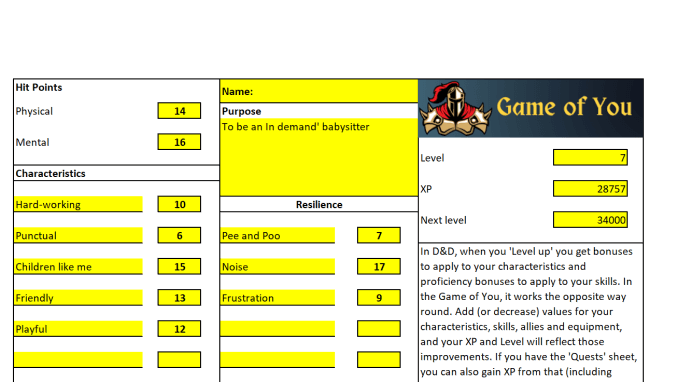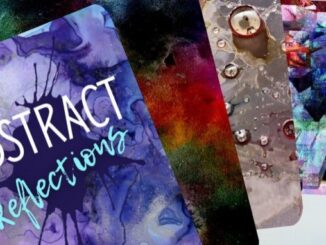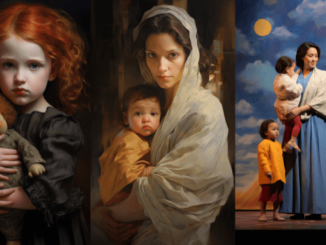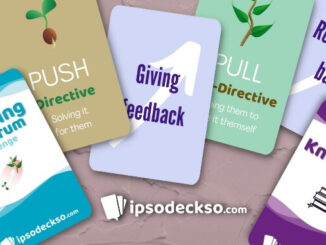
If you’re like me, with regard to Role-playing Games (RPGs), you will really enjoy the process of ‘rolling-up’ your character – creating the avatar through which you will be experiencing the narrative of the game.
I often spend ages tweaking the stats and using them to create a backstory in my imagination of how this character has become who they have, how they have pitched up in the location they are in, what drives them to adventure.
I favour magic users (at least when I am playing Dungeons and Dragons style games), so I will usually find that the stats profile of my characters are quite similar. They are low on Strength and Constitution usually, because all the available points have been allocated heavily towards Intelligence, to ensure a healthy number of spell points. A low-level magic user will need some strong allies who are willing to front the party and shield him or her, to ensure some chance of survival to be a higher-level magic user.
We roleplay in real life
And so it is in real life, we have our strengths and weaknesses, our specific skillsets, allies and competencies, which taken together, paint a picture of someone who is fit (or not so fit) to act in specific roles, or to carry out particular pieces of work. In life, this idea is often expressed as a ‘job description’.
The Job Description is actually a pretty one-dimensional way of describing what somebody is, as it only captures a narrow set of characteristics, which are usually (unless you are very lucky), desired by a third party to execute specific tasks.

As a (whole) person, you have many more characteristics and skills which are not relevant to this ‘job description’. In (the game of) real life you may often play with your ‘Project Manager’ avatar or character, but at other times you play your ‘Parent’ character or your ‘Drummer in a Ska Band’ character. Each of them prioritise different characteristics, skills, allies and activities. And you can ‘grow’ in each of those roles at different rates.
There is often friction because of the demands of the different characters on your time and energy. For example, the ‘Parent’ might not be able to develop as she wishes because the ‘Project Manager’ is impinging on her time.
The featured image of this article shows part of a character sheet from ‘The Game of You’ compiled by a 15 year old. The Character she wants to play is ‘In-demand Babysitter’. She is currently at Level 7 in her progress towards becoming the fully-realised babysitter she wants to become over the summer holidays – Level 20 in this game represents ‘the best you can be’.
It should not be assumed from this that the ‘Game of You’ is only suitable for young people – just that I tend to use my nearest and dearest for trying out game ideas!!
The different characters which make up ‘You’
In an RPG, a player can have as many characters playing in different games and campaigns as s/he pleases
The ‘Game of You’ encourages you to play a game of personal and professional development, in which you can also play any of the characters that are significant to you, track their progress towards important development goals and (which is not usually a feature of ‘for fun’ RPGs), use what you discover about these ‘characters’ to explore balance and priorities in your life and growth.
The Character Sheet is the basis of ‘The Game of You’, as it allows players to create their own ‘character’ (or set of characters) in the style of an RPG. A pen and paper version is available, and a fully-functioning automatically calculating version will be posted on itch.io soon.
Today, I started to add the functionality of the ‘Quest’ sheet. The idea behind Quests is to reflect on the value of ‘learning’ activities to the development of your characters.
In an RPG we can experience from all sorts of activities, quests, combat, even ‘grinding’. From each of these we will gain experience points (XP), which are recorded for your character, and contribute to their levelling up.
RPGs (objectively) measure experience
In life, we similarly learn from everything we do, each project, each social interaction, every win (or failure) and yes – even the grinding. Learning does not only happen from ‘special purpose’ learning activities. The only difference between real life and an RPG, in this respect, is the enumeration. We do not, usually and habitually, enumerate our learning from experience.
Sometimes however, we are called upon to do so. When applying for a job, one of the purposes of a CV (resume), is to inform others about what we have learned from the experiences we have had, and how it might match to a potential role. Often that is expressed through length of experience, or through qualifications.
Roleplaying your CV
If you’re anything like me, updating your CV can be a bit of a feat of memory, and what you end up with never really describes all the nuances of how you have developed. Also, given that CVs need to be customised to each new opportunity, they are far from representative of your ‘whole self’
If real life were more like an RPG, each new experience would reflect in your ‘stats’, AND you would gather a ’quest log’ along the way, which would be a permanent record of the ‘value’ of any given experience to your permanent and professional development.

Quest Sheet attached to Character Sheet ‘In-demand Babysitter’ – by a 15 year old girlThe ‘Game of You’ Quest sheet links with the Character Sheet and updates your stats on the completion of your quest. It writes the ‘story’ of your quest to a quest log, and then clears itself, so that you can use it to record your next quest.
And because we never only have one quest on the go, or indeed, only have one character’s game underway, you can have multiple quest sheets attached to each ‘character’, and indeed multiple characters in play in the ‘Game of You’.
Your ‘Whole Self’ is more than your CV
But what about your ‘whole self’? In an RPG I can be playing several different characters in different games, and they can all have very different ‘levels’. In life, my experience in my different roles, works in much the same way. I am a high-level Learning Professional, but a low level (at the moment) Plasterer and Bridge Player. Ongoing house renovation will ensure I level up pretty quickly in plastering (I may take a course to speed up that process), and I am hoping that I will soon get the chance to play at the Bridge club I have joined to polish up skills including ‘bidding’ and ‘finessing’, as well as adding some new allies to my ‘Socialiser’ character sheet.
Just like the variety of CVs you have to produce to satisfy the requirement of different job applications, your different character sheets will reflect ‘how well’ you are doing in developing growing in different important ‘character’ areas of your life.
The Future of the Game of You
The ‘Game of You’ is a work in progress, and is developing as an idea as each new component is added.
At the moment, there is an MVP (minimum viable product) of the Character Sheet. This will soon be joined by an auto-calculating version of the character sheet and linked Quest Sheet and Quest Log.
In time, it is envisaged that the full game will include:
- Spells /power ups – strategies and hacks that may not actually be magic, but feel like they might be as they impact your resilience, productivity and well-being
- Player dashboard – a summary of your characters, which can be used as an overview of balance in different life areas
- Quests which update more than one character
- CV (resume) templates based on character sheets
- Pre-loaded quests – pre-populated quests sheets, that for example, represent the XP and skills value of undertaking an accredited learning programme.
- Aspirational character sheets – representing the ‘gap’ between the ‘stats’ of a person you would like to model, and your own character, so you can work on that gap.
If you would like to get involved in developing this idea, maybe as a resource you could use with Coaching Clients, learning cohorts or for your own personal / professional development-get in touch at sarah@ludogogy.co.uk
- James Bore – The Ransomeware Game - 13th February 2024
- Ipsodeckso – Risky Business - 23rd January 2024
- Review – Luma World Games - 15th December 2023





Be the first to comment